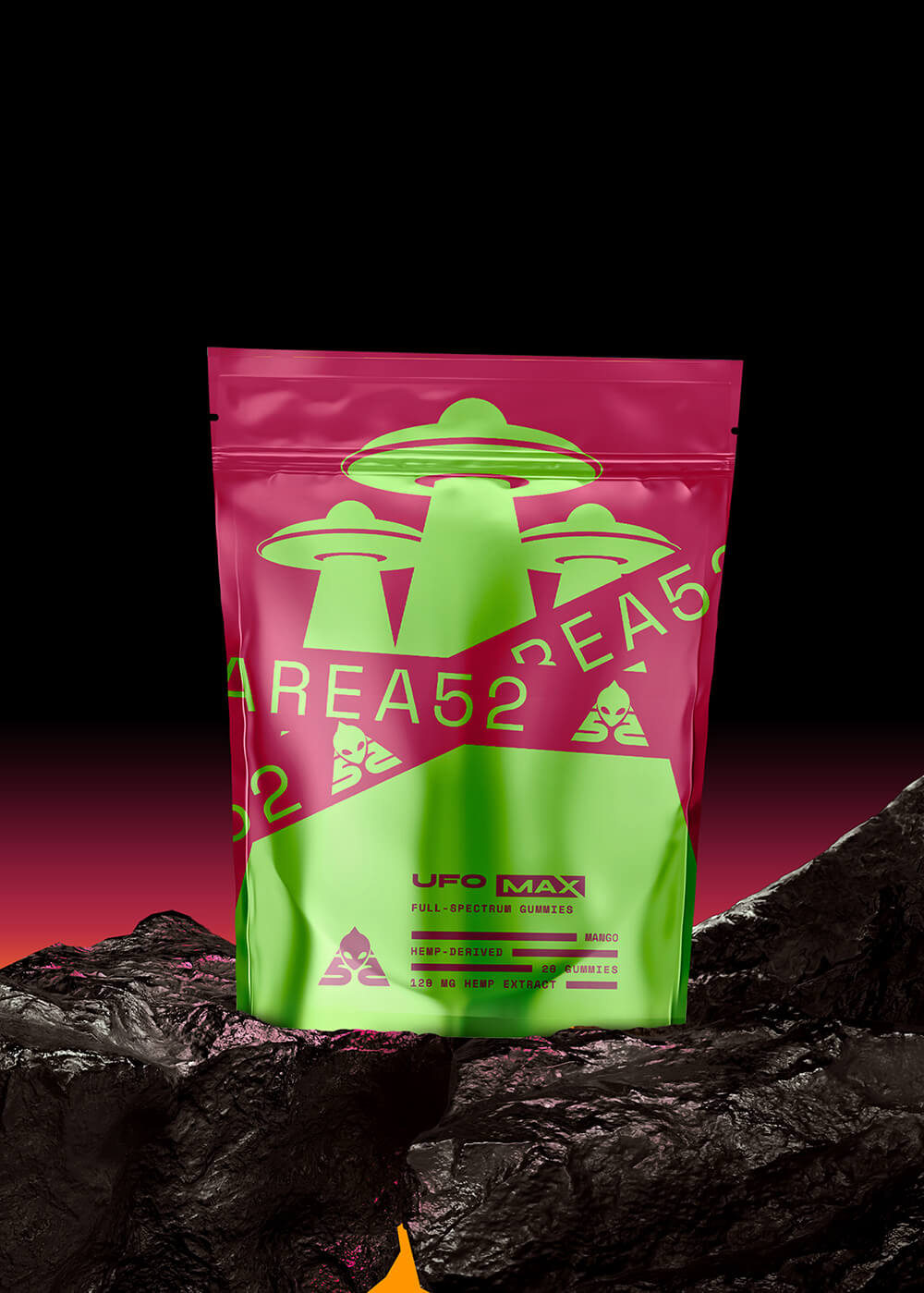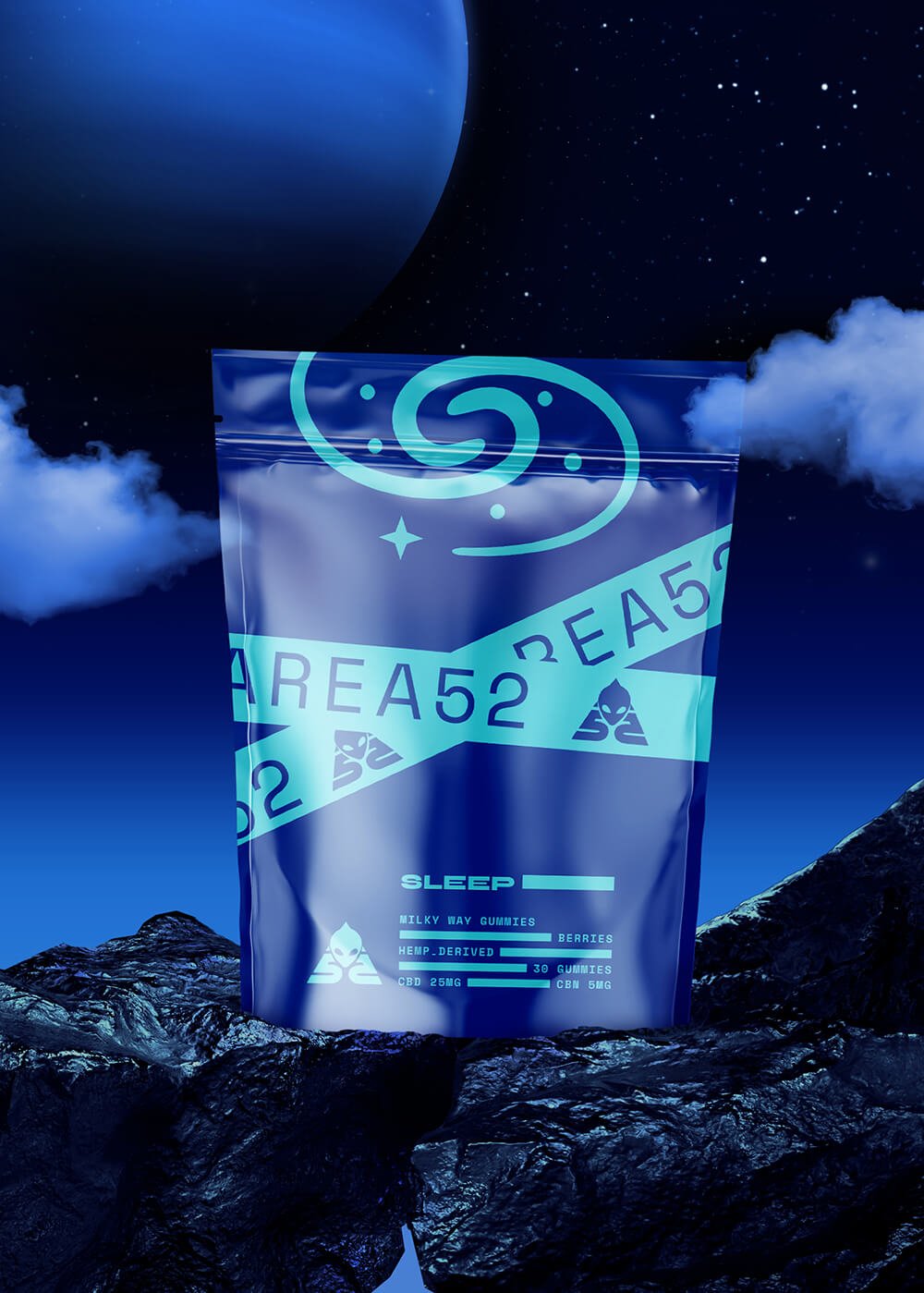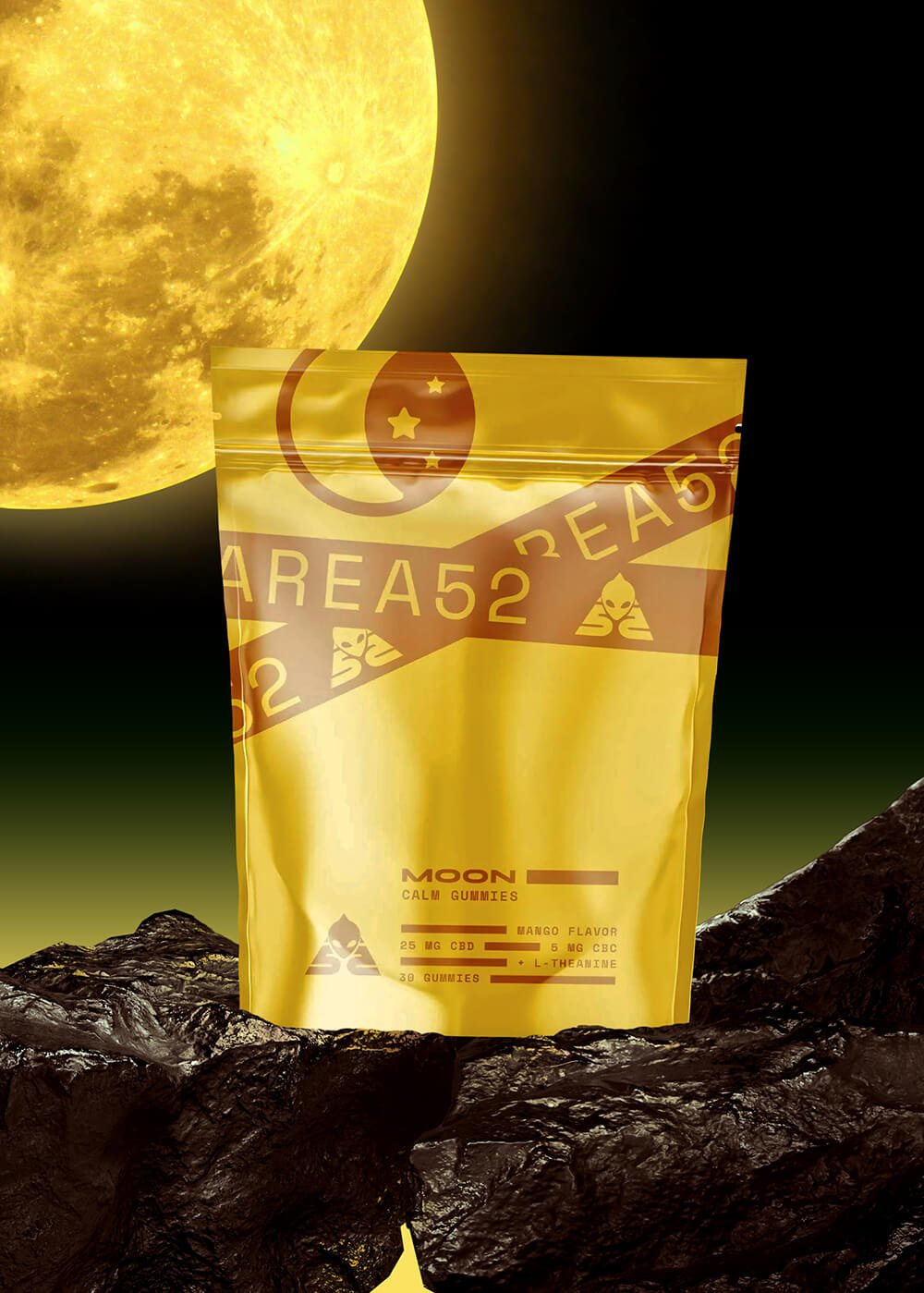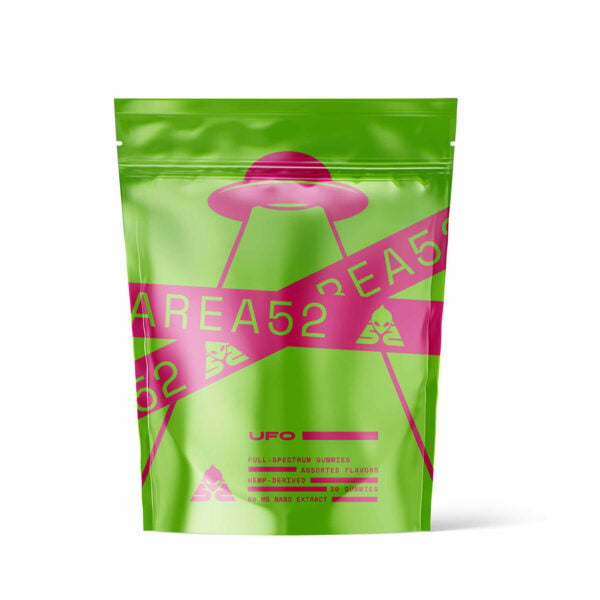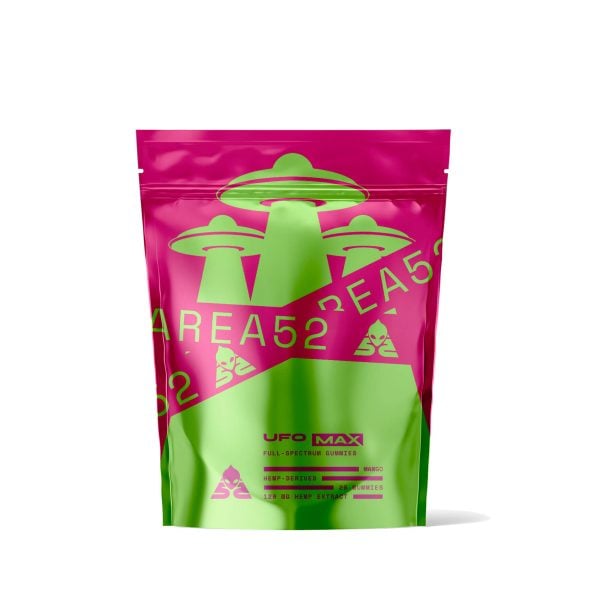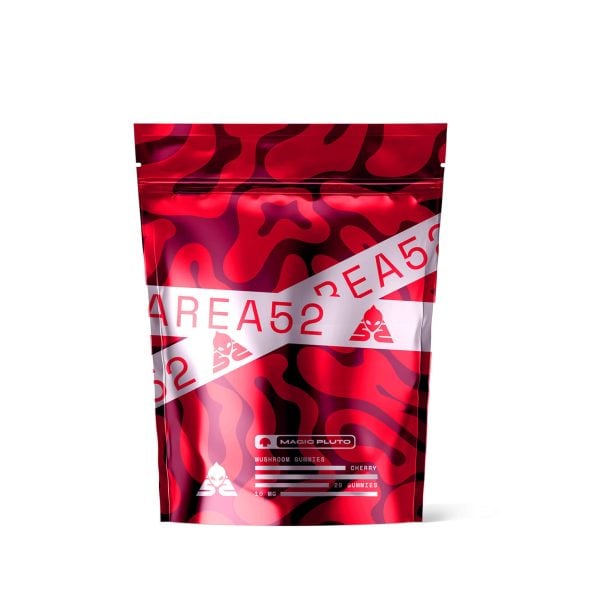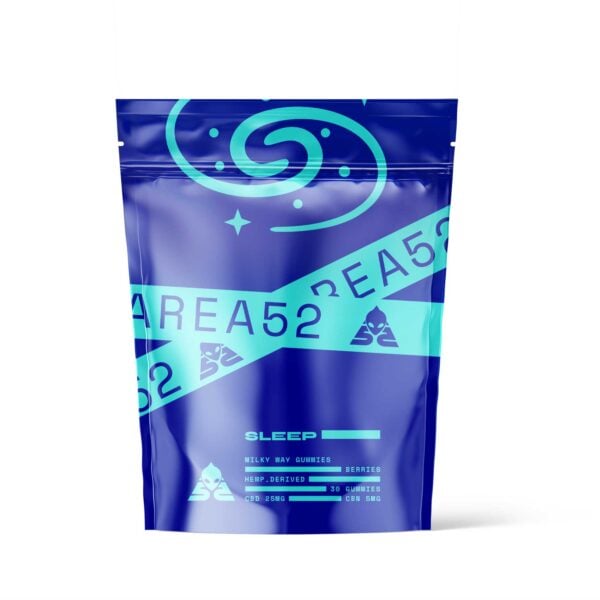Delta 8 THC in Alaska: Is It Legal & Where to Buy in 2025?
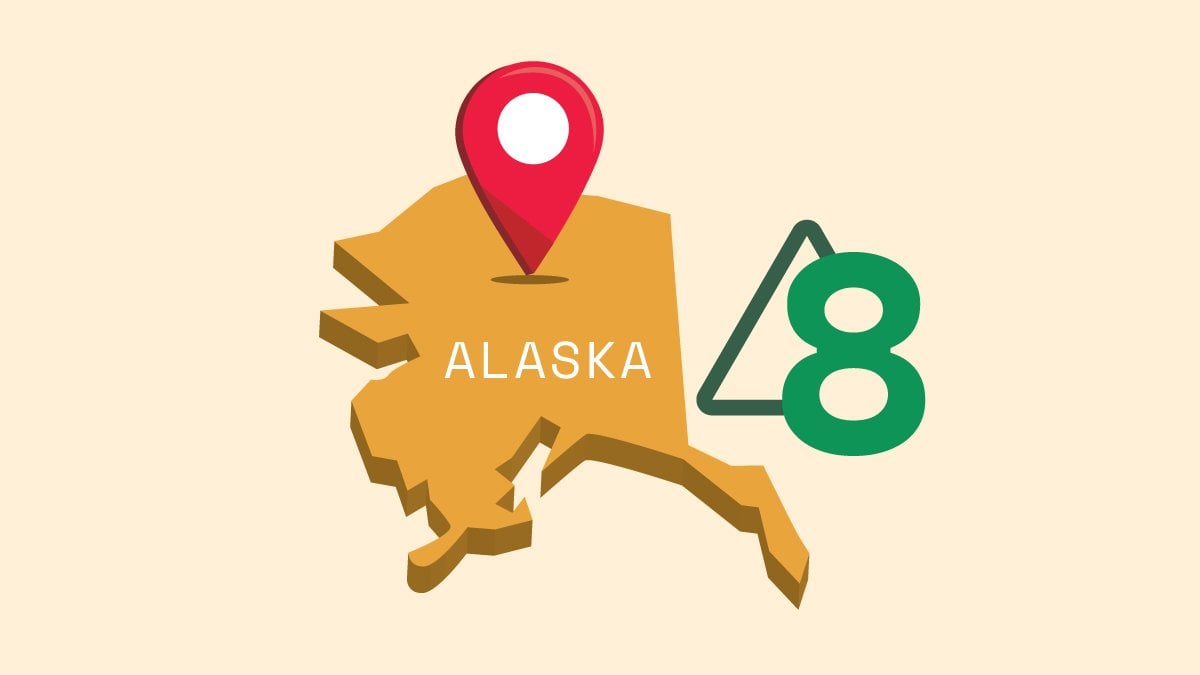
Delta 8 THC is an analog of the better-known compound — delta 9 THC — the active ingredient in marijuana.
Federal law states that cannabis-infused and hemp products for sale may not contain more than 0.3% delta 9 THC. However, it doesn’t clarify anything about its THC isomers like delta 8 and delta 10 THC.
The law leaves these two other cannabinoids in the same legal category as CBD as long as they’re made from industrial hemp instead of marijuana.
In the legal greyness of hemp derived cannabinoids, it can be challenging to understand whether you’re allowed to purchase delta 8 THC or not.
In this article, we’ll inform you about the legal status of delta 8 in the state of Alaska and enlighten you on various aspects surrounding this mysterious and worthy cannabinoid.
Is Delta 8 Legal in Alaska?
Unfortunately, delta 8 THC is illegal in the state of Alaska, even if it’s derived from industrial hemp — as stated in Sec. 7. AS 11.71.900(14) of the Alaska Statutes.
Despite all the improvements we’ve made in changing Alaska regulations to be more relaxed when it comes to cannabis and hemp derived products, delta 8 is effectively prohibited and listed in the state’s Controlled Substances Act as a Schedule IIIA Controlled Substance.
The passing of the federal Farm Bill in 2018, signed by President Donald Trump, legalized hemp cultivation and hemp derivatives. This inadvertently also made hemp derived THC legal, provided such products must comply with the THC ratio or legal limit of 0.3% THC on a dry weight basis.
The new regulations also severely restricted the use of hemp with more than the legal THC limit, classifying it as marijuana, which remains illegal under federal laws.
Because hemp compounds became legal, delta 8 THC also became a legal substance at the federal level as long as a few specific criteria were met:
- It had to be made from hemp
- It had to contain no more than 0.3% total THC content
Several states, including West Virginia and New Mexico, also followed the same existing regulations regarding hemp and hemp derived cannabinoids.
States like Arkansas, Ohio, and North Carolina passed Senate bills and House bills that also exempted hemp and its derivatives from their list of controlled substances.
There are also states that imposed temporary injunctions on delta 8 THC, such as Texas and Georgia, allowing the sale and use of this cannabinoid.
However, other states imposed their own changes that sought to outlaw hemp derived delta analogs like delta 8 or delta 10 THC. Alaska is a perfect example of this, as well as South Carolina and South Dakota.
Other states that banned delta 8 also include New Hampshire and Rhode Island. The Vermont Agency of Agriculture, Farms, and Markets (AAFM) as well as the Oregon Liquor and Cannabis Commission also banned the production, sale, and use of delta 8.
Do I Need A Medical Card in Alaska To Order Delta 8 THC?
Even with a medical card, you’re not going to be able to buy delta 8 THC in the state of Alaska, and there are no licensed marijuana dispensaries that currently even carry it.
According to the state’s cannabis board and its task force’s clear regulations, all forms of hemp-derived intoxicating cannabinoids, synthetic cannabinoids, and artificially derived cannabinoids are considered illegal.
If you want to register as a medical marijuana patient in the state, be sure to check out the website of Alaska Department of Health for the complete requirements and ensure compliance with its guidelines.
Recreational Marijuana in Alaska
Recreational cannabis use and possession of small amounts of cannabis for personal use are legal, according to Alaska state law, but with age restrictions, of course. The state is one of the first states to legalize weed for adult use through a ballot measure in 2014.
Although it’s legal to grow your weed in Alaska, you can only have a maximum of 113 grams of weed in your private dwelling (this is quite a generous amount of weed).
The law states that you can carry up to 28 grams in public, but you’re likely to get in trouble if you carry more than that.
If you’re caught with between 28 and 113 grams, you could be imprisoned for a year and pay a fine of up to $1,000. If you carry an even larger amount, the penalty could increase and go up to 5 years in prison.
Why is Recreational Marijuana so Expensive in Alaska?
Alaska is one of the places where recreational marijuana prices are outrageously high.
The price for one pound of top-shelf marijuana is around $9000 in the average store. As for reference, the average price for the same amount of weed in Colorado is $1,471.
If we go to the black market, the difference is substantial: $2,000 to $3,600 per pound.
Going to more manageable quantities: an eighth of an ounce counts for $60 to $88 in the store; the black market price is $40.
The reason for these stricter regulations, it’s said, is the scarcity of the product. According to the state’s cannabis commission, there’s more demand than supply, so prices have skyrocketed. The Alcohol and Marijuana Control Office of Alaska offered 45 new licenses to growers to prevent this from happening.
Those who are now licensed enjoy spectacular overpayments: up to $5,000 per ounce from the stores. No wonder they say, “We see no reason to lower prices.”
This is one of the main reasons why so many people in Alaska seek out delta 8. It’s way cheaper, and because of the globalized world we live in, there are no borders for buying federally unregulated products in the United States. You can easily order delta 8 products made in California and have them delivered anywhere in the United States.
That is unless the state moved to contradict federal law and ban it — as is the case with Alaska.
What’s The Difference Between Delta 8 THC & Delta 9 THC?
Delta 8 is a cannabinoid that comes directly from the marijuana plant. No chemical procedure is needed to access delta 8, but its concentration in marijuana flowers is only around 1%.
Delta 8 THC interacts with your endocannabinoid system (the neurotransmitters and receptors in the brain that THC acts on) slightly differently than delta 9 THC, producing what’s often said to be a less potent but similar experience.
Of course, the experience can vary depending on the quality and quantity of THC ingested, among other factors. Things like what a person has eaten and drank before using the cannabinoid, as well as differences in how their body’s cannabinoid receptors react to THC, can all alter the experience.
How to Use Delta 8 THC
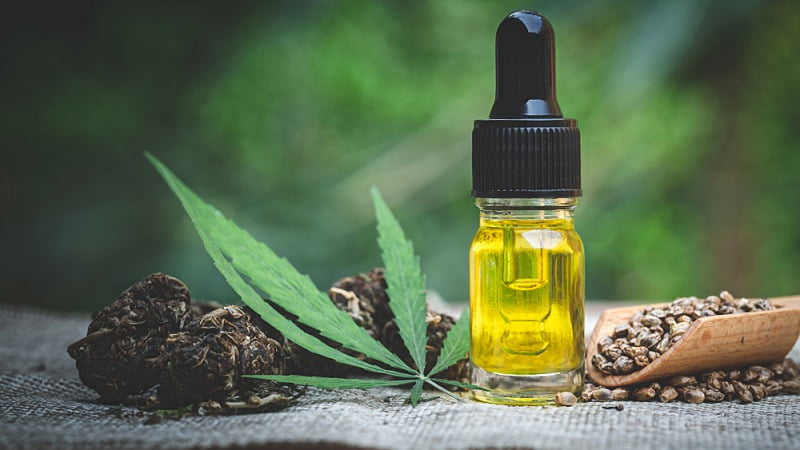
We can find delta 8 THC in different presentations. Nowadays, several companies specialize in this product, and there are more and more options when choosing the way we consume this cannabinoid.
Some of the most common presentations of delta 8 THC include:
Delta 8 THC Tinctures
Tinctures are made by dissolving delta 8 THC distillate in a carrier base. The most common base is alcohol-soluble. But at Area 52 we use MCT oil as a carrier oil for our tinctures.
These products are easy to use, have a rapid absorption rate, and have a long shelf-life.
Delta 8 THC Gummies
Delta 8 THC gummies are similar to tinctures or capsules, but instead of using a carrier oil as the base, they use gelatin and fruity flavoring.
D8-THC infused gummies are, by far, one of the most common forms of using delta 8 nowadays. They make calculating doses super simple and offer all the benefits of edible delta 8 (high potency and discrete dosing) without any negatives (no fussing around with oils or lung damage through smoking).
Delta 8 THC Vapes
D8-THC distillate cartridges and disposable vapes are other popular forms. The main advantage of this method is a combination of the simplicity of use (take a quick puff whenever you feel like it) and rapid onset of effects.
Within a few seconds of puffing on a vape, you’ll start to experience the effects of delta 8 THC. Compare this to edibles which can take up to an hour to kick in.
Is Marijuana (Delta 9 THC) Legal In Alaska?
Marijuana is legal in Alaska for medical and recreational use in the comfort of their own home. However, using marijuana in public remains illegal.
Related: Where is marijuana legal in the United States?
What About Delta 10 THC: Is It Legal?
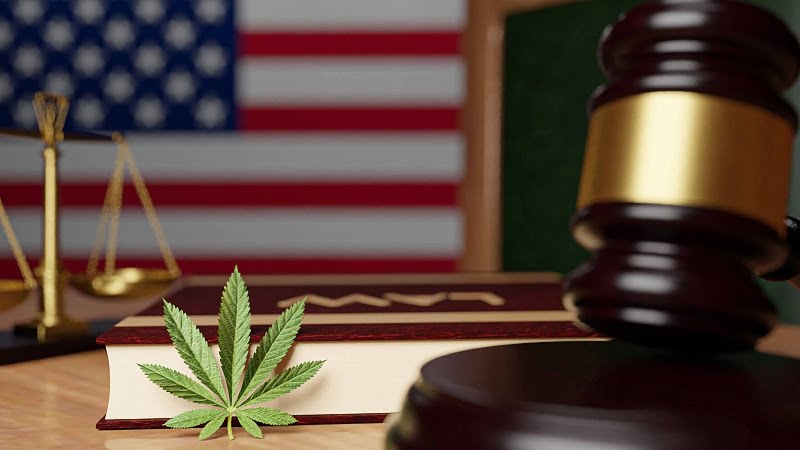
Delta 10 THC is legal on a federal level but banned in Alaska under the same laws as delta 8.
This cannabinoid is also an analog to delta 9. Its effects are similar to delta 8 THC, but its potency is lower than its concentration in the cannabis plant.
What’s The Future of Delta 8 THC in Alaska?
Despite having legalized weed in Alaska, outdated laws remain in place that ban the sale and consumption of delta 8 THC.
This ruling is contradictory to the federal law that permits any delta 8 THC products made from the hemp plant.
As public interest in delta 8 THC continues to grow, we’ll likely see changes to these laws that remove delta 8 and other naturally occurring cannabinoids from the prohibited substances list.
State officials also continue to work on refining the regulations to address the ever-changing hemp and marijuana landscape.
It’s unclear how long this process will take, but it’s likely to take another year or more before any changes are put in place or challenges to the existing laws can work their way up the legal pipeline.
FAQs: Is Delta 8 Legal in Alaska?
Want to know more about the status of delta 8 THC and other cannabinoids in Alaska? Then check out the short list of questions below.
1. Is Alaska 420 Friendly?
Yes, Alaska is a 420-friendly state. The state legalized both medical and recreational marijuana use in 1998 and 2014, respectively.
Do note though that hemp-derived psychoactive cannabinoids like delta 8 and delta 10 are banned in the state.
2. Why is Delta 8 Banned in Alaska?
There are several reasons why delta 8 is banned in Alaska. For one, the state considers all forms of psychoactive cannabinoids as controlled substances and tightly regulates the market, be it for medical or recreational use.
Two, delta 8 is not as well-understood as delta 9, especially when it comes to safety. The process of converting CBD into delta 8 THC is also not thoroughly researched, raising safety concerns.
Three, the state considers delta 8 THC a synthetic cannabinoid.
3. Is Delta 9 Illegal in Alaska?
No. Hemp and marijuana-derived THC aren’t illegal in Alaska, having legalized marijuana for both medical and adult use. People of legal age can legally buy, use, and possess delta 9 THC.
However, the state considers hemp-derived psychoactive cannabinoids illegal, including delta 8 THC.
4. Is HHC legal in Alaska?
We can’t find any document that specifically talks about the legality of HHC in Alaska. But if we follow the state’s current laws regarding hemp-derived psychoactive cannabinoids, then we can assume that HHC is also illegal.
HHC or hexahydrocannabinol is a naturally occurring cannabinoid produced by the cannabis sativa plant, but only in very small amounts. Similar to delta 8, we convert CBD into HHC to get a higher yield.
That said, HHC and other hemp-derived psychoactive cannabinoids like THC-O may fall under the same restrictions as delta 8 THC.
- Can Delta 8 Go Through TSA?
It depends. If they’re hemp delta 8 gummies, tinctures, or oils, then there should be no issues traveling with delta 8. Just make sure you keep them in their original packaging or have a copy of their lab test result, which you can download from the vendor’s website.
However, if they’re flowers or vapes, then it’s best to leave them at home. These products look too much like marijuana, and getting caught with them could result in travel delays or, worse, legal problems.
You also need to check local laws because not all states allow the use of delta 8, like Alaska.
That said, it’s best not to transport delta 8 into Alaska or cross state borders with it. To be safe, you can just buy delta 8 products when you get to your destination state, provided it’s legal there, of course.
References:
- Marijuana Policy Project. (n.d.). What are state regulators doing about Delta-8 THC? Retrieved April 25, 2025, from https://www.mpp.org/policy/federal/delta-8/what-are-state-regulators-doing/
- Marijuana Policy Project. (n.d.). What are state regulators doing about Delta-8 THC? Retrieved April 25, 2025, from https://www.mpp.org/policy/federal/delta-8/what-are-state-regulators-doing/
- Oregon Legislative Information System. (2021). House Bill 3000: Enrolled measure document. Retrieved April 25, 2025, from https://olis.oregonlegislature.gov/liz/2021R1/Downloads/MeasureDocument/HB3000/Enrolled
- Vermont Agency of Agriculture, Food and Markets. (n.d.). The manufacture of Delta-8 THC or its use in hemp products is not permitted under the Vermont Hemp Program. Retrieved April 25, 2025, from https://agriculture.vermont.gov/hemp-program/manufacture-delta-8-thc-or-its-use-hemp-products-permitted-under-vermont-hemp-program
- Municipality of Anchorage. (n.d.). Hemp and cannabis regulations. Retrieved April 25, 2025, from https://www.muni.org/Departments/Assembly/SiteAssets/Pages/Community%20and%20Economi
